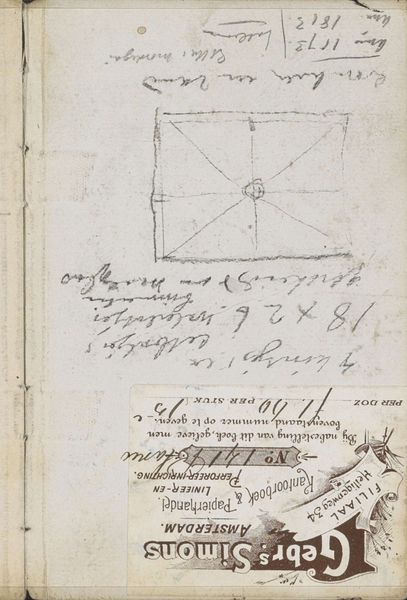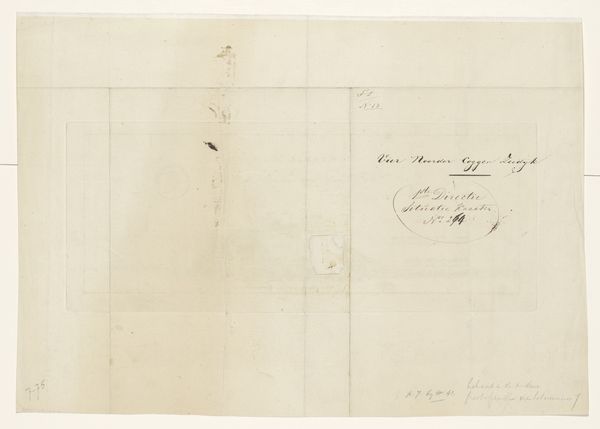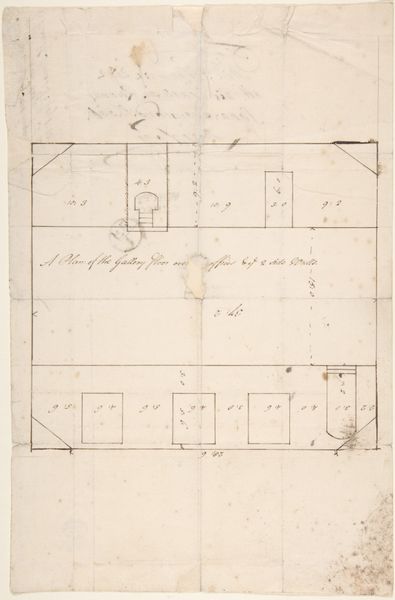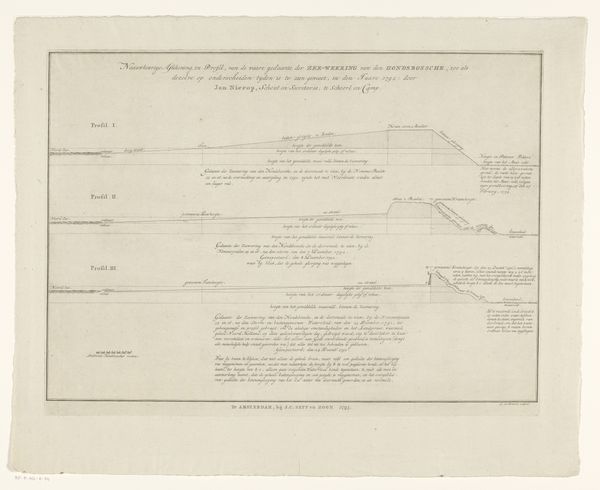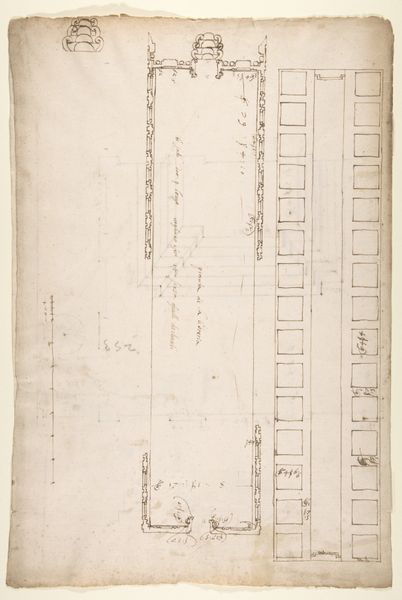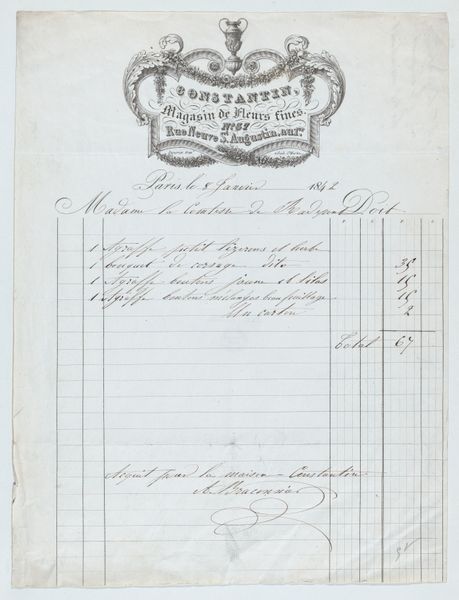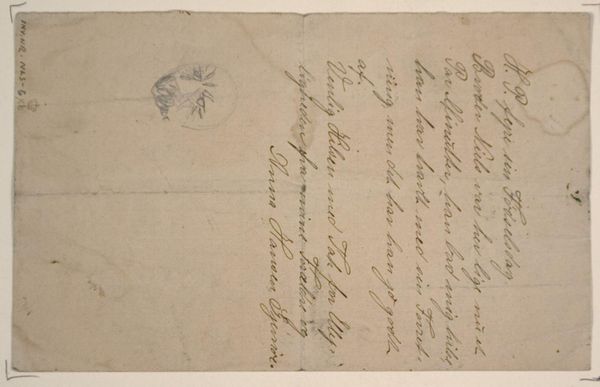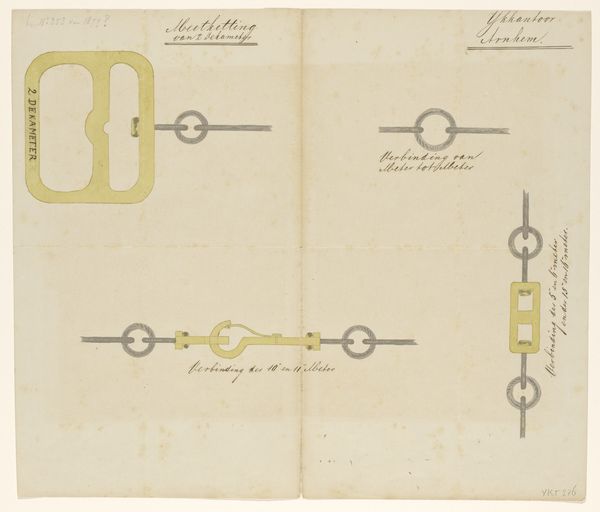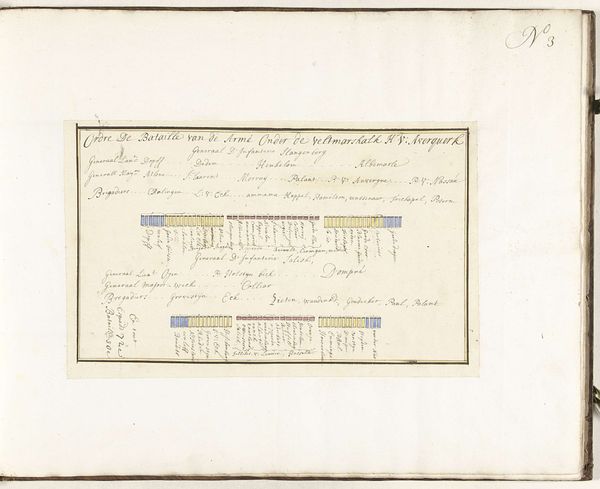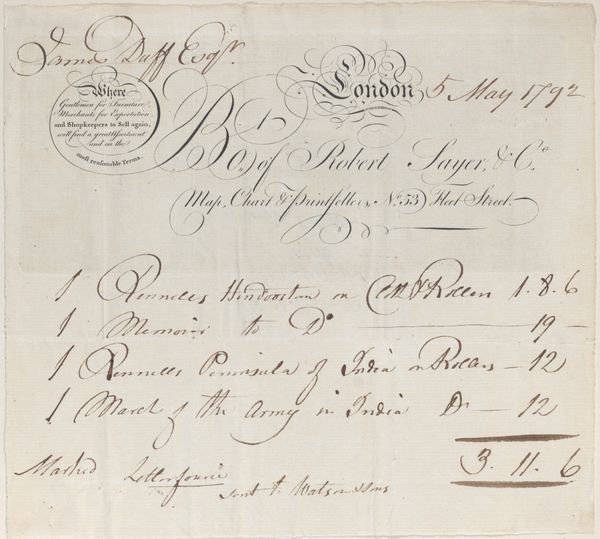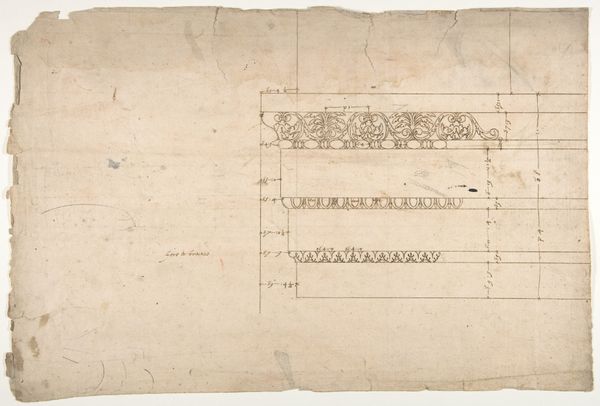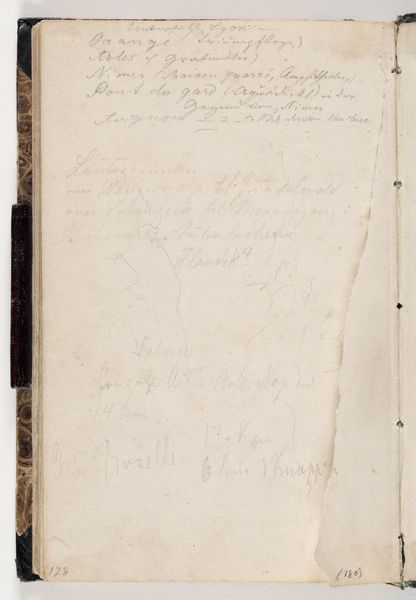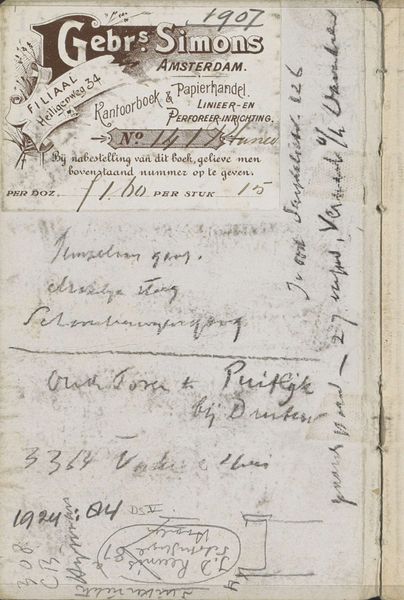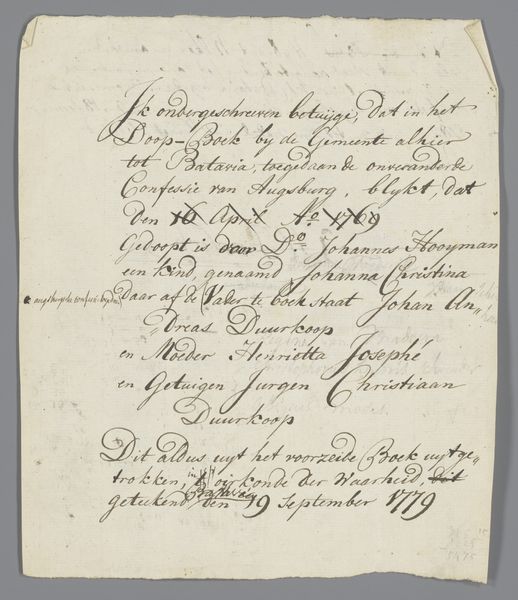
drawing, paper, ink, pencil
#
drawing
#
aged paper
#
toned paper
#
hand written
#
paper
#
11_renaissance
#
ink
#
geometric
#
pencil
#
stylized text
#
line
#
history-painting
#
academic-art
#
watercolor
#
historical font
Dimensions: height 389 mm, width 341 mm
Copyright: Rijks Museum: Open Domain
Curator: This drawing, "Profiel plafondlijst en een schetsje," created between 1750 and 1840 by Giuseppe Fancelli, gives me a lot to think about. What strikes you about it? Editor: Well, the architectural plans give the piece a sense of structure and order. It's more than just a sketch; it feels like a glimpse into the mathematical reasoning of the period. What’s your take? Curator: For me, it evokes questions around power and the social context of architectural design during this era. These aren't just neutral geometric shapes, right? Who had access to such knowledge, and who benefitted from these carefully constructed spaces? The very act of meticulously planning a ceiling moulding hints at patronage and class. How might this seemingly innocuous sketch reveal the inherent biases within the artistic practices of the time? Editor: That's a fascinating angle. I hadn't considered the social implications embedded in what seems like a purely technical drawing. Curator: Absolutely! Consider the historical font and stylized text, and then ask whose stories are valued and preserved, and whose are erased, or never given a platform in the first place. By examining what gets documented, and how, we begin to see whose voices truly mattered. Does that shift your perception of the work? Editor: It definitely does. I am intrigued by the geometric shapes you mentioned in terms of the power they yield and their role in shaping spaces with potential societal implications, such as the accessibility and impact within broader socio-political structures. It changes the whole atmosphere! Thanks. Curator: That is fantastic! Understanding these historical contexts deepens our relationship with the artwork and how the language of its symbols shape our reading of power itself.
Comments
No comments
Be the first to comment and join the conversation on the ultimate creative platform.
